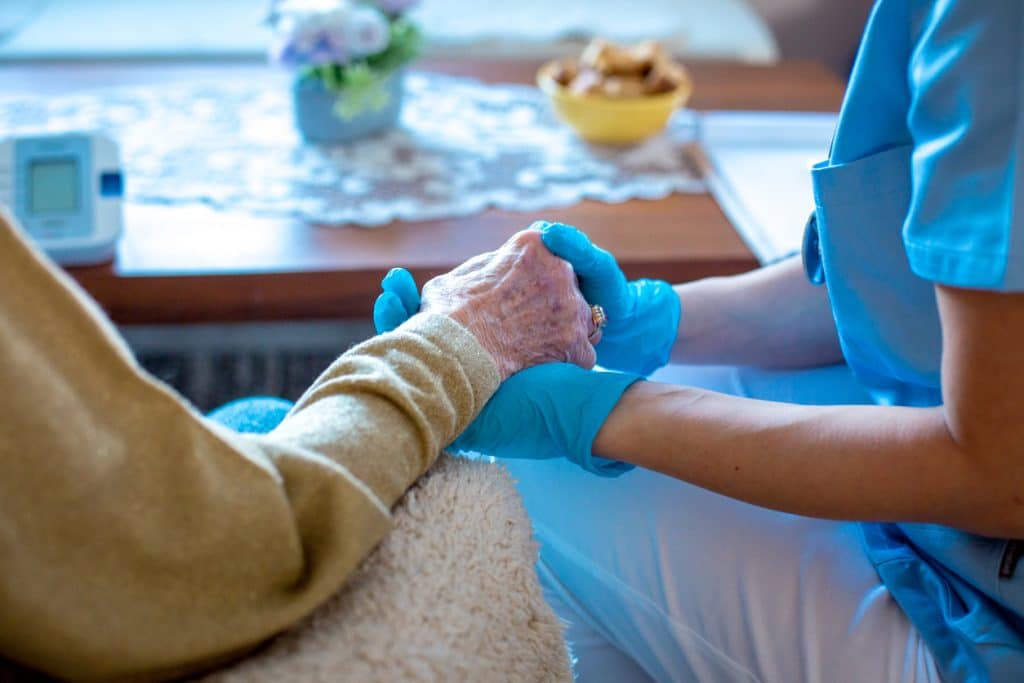
Jenan Taylor
8 September 2022
Most Anglicans are against voluntary assisted dying despite a survey suggesting high levels of support among them, according to one Church leader.
Trinity College research professor the Reverend Canon Professor Dorothy Lee said there was always a diversity of opinion among Anglicans, but that most did not accept VAD.
It came as a new Australia Institute poll on territory rights and VAD found that people who identified as Anglican were more supportive of it than most other Australians, including Catholics and other Christians.
The poll had asked more than 1000 people across the country whether they thought a doctor should be able to help someone die if they had a terminal illness and were experiencing unrelievable suffering.
More than 80 per cent of Anglicans believed that VAD should be legal.
The survey also asked whether people supported the territories’ rights to have VAD laws, and 82 per cent of Anglicans said they did.
But Professor Lee said she was astonished at the survey’s findings.
She said the basis of most theologians’ opposition was not that people should suffer or that they should have pain, but that Anglicans were called to choose life and to share one another’s burdens.
The argument for assisted dying because people were suffering did not hold in most cases, she said.
“I think that it’s the thin end of the wedge, once we start saying it is for people who are gravely ill and in pain. Why not also people who are psychologically very ill and in pain? Why not a young person who wants to suicide? Why are we trying to prevent suicide, if we think suicide is okay?” Professor Lee said.
She said she didn’t attribute blame to people who chose suicide.
Blame lay with our society and situations where there was a lack of proper care, and where elderly people and those who were sick and dying or very lonely felt like they were a burden, Professor Lee said.
There was respite care and palliative care so that in most cases people didn’t actually need to suffer, she said.
“We should be putting all our efforts into preventing suicide. Voluntary assisted dying is, actually, suicide. Let’s name it. So, we’re either against suicide or we think it’s okay. Well, it’s not okay,” Professor Lee said.
“We need to change our social attitudes and support people who are depressed or who feel alienated or rejected or who are suffering pain.”
Read more: Synod votes to not vote on ‘Being the Body of Christ’
She said that Christians were called to care for those who were very ill, and very depressed, and to not inflict death.
Not all, but many Anglicans would have that view, Professor Lee said.
Medical ethicist Dr Denise Cooper-Clarke was also surprised by the figures attributed to Anglicans in the poll.
Dr Cooper-Clarke said that both Melbourne Synod and the General Synod had opposed euthanasia and assisted dying in motions.
That signalled a possible mismatch between what the Church had decided and what people who identified as Anglican were saying, she said.
But she said it was good that the Church had taken a stand for the protection of human life, as it had done consistently throughout history.
Dr Cooper-Clarke said she understood that there were strong feelings about the issue but that survey questions about VAD often evoked emotive scenarios.
Yet the questions often discounted the way that assisted dying actually worked in all states of Australia, she said.
Dr Cooper-Clarke said people didn’t need to be in actual physical pain. They only needed to say they were suffering and had to be, in the doctor’s estimation, within 12 months of possibly dying of terminal illness.
“So sometimes people’s suffering is more emotional than physical. It may be that they’re just terribly lonely and in despair,” she said.
Dr Cooper Clarke also said there were concerns that because psychiatric illness could be used as an argument for VAD in Canada, it could also happen in Australia.
She said another concern in particular was that people could be assessed for euthanasia via telehealth.
But advocacy group Christians Supporting Choice for Voluntary Assisted Dying said Christians of all denominations had been supportive of assisted dying for years.
National coordinator Ian Wood said that public polls going back as far as the early 1980s had shown a change in Christian attitudes to the issue.
Mr Wood said news polls conducted by Dying with Dignity Victoria in 2007, and YourLastRight.com in 2012, had shown that Anglican support for euthanasia had climbed higher than the average for all Australians.
He agreed that there was a possibility that people who were not necessarily church-goers, but who identified as Anglican, could also potentially be counted among those supporters.
He said there seemed to be a disconnect between what congregations wanted, and what the hierarchy of Anglican and Catholic churches wanted.
But prominent Anglican leaders overseas, including the late Archbishop Desmond Tutu, had been supportive of assisted dying, Mr Wood said.
He said he thought that Christians were more inclined to give deeper consideration to issues than they had in the past, and to not necessarily accept what they were being told these days.
“Probably people aren’t so ostracized now for questioning these things, as they might have been earlier,” Mr Wood said.
If you or anyone you know needs help, please contact: Lifeline on 13 11 44 or Beyond Blue on 1300 224 636.
For more faith news, follow The Melbourne Anglican on Facebook, Twitter, or subscribe to our weekly emails.






